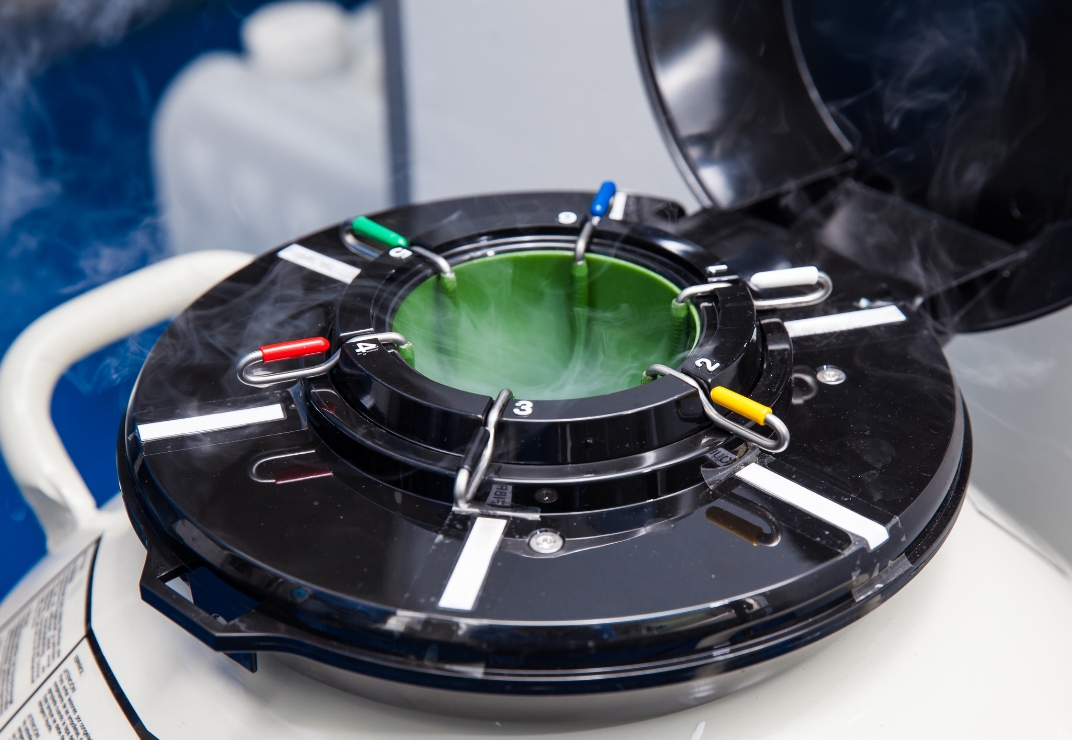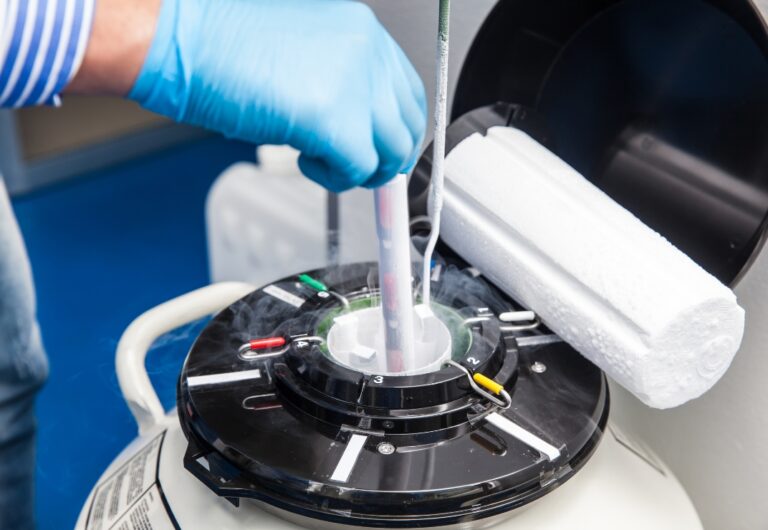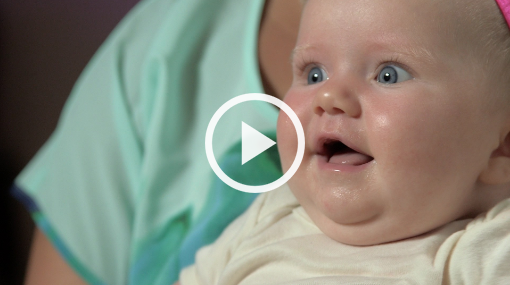When to Consider Using Donated Sperm
Just like egg donation, sperm donation involves the use of donated sperm obtained from a sperm bank. There are many reasons patients may need donor sperm. Many men can face challenges with sperm quality, including issues with:
- Sperm concentration
- Semen volume
- Sperm morphology (size and shape)
- Sperm motility (movement)

Donor sperm is also required for female same-sex couples or single women who are pursuing parenthood — whether the sperm is acquired from an anonymous source at a sperm bank or from a male family member or friend.
If your physician recommends sperm donation as part of your treatment plan, we can refer you to a reputable sperm bank, where you can select a sperm donor of your choice. The sample will then be shipped to our office to be used during your fertility treatment.

What to Expect When Pursuing Sperm Donation
Choosing a sperm donor from a sperm bank is an important decision for couples or individuals looking to start a family. To ensure the health and safety of the resulting pregnancy, sperm donors are thoroughly screened by sperm banks. This typically includes a comprehensive medical history evaluation, genetic testing, and screening for sexually transmitted infections. The donor’s sperm is also evaluated for quality and quantity.
Sperm banks adhere to strict guidelines set by regulatory agencies to ensure that only eligible and qualified donors are accepted into their programs. The donor information, including their personal and medical history, is made available to intended parents for review and selection.
Donor Sperm Selection
Sperm banks typically provide detailed information on each donor, including their physical characteristics, education, family history, and personal interests. This information may help you choose a donor whose traits align with your preferences and expectations. Additionally, sperm banks often offer the option of choosing a donor based on race, ethnicity, and other factors that may be important to you. Once you select a donor, their sperm can be used through various assisted reproductive techniques like intrauterine insemination (IUI) or in vitro fertilization (IVF).

Sperm Donation from Someone You Know
Using a known sperm donor (like a friend or family member) is an option for couples or individuals looking to start a family through sperm donation. This approach can offer more control over the donor selection process, as you already have a personal relationship with the donor.
However, it’s important to remember that using a known sperm donor can raise legal, emotional, and practical considerations. For example, a legal contract between the donor and intended parents is required to clearly outline expectations and responsibilities. Additionally, using a known sperm donor may also impact the emotional dynamics of the donor relationship and can have long-term implications for everyone involved. A professional psychological evaluation of both the sperm donor and intended parents is required.
If you’re considering using a known sperm donor, it’s important to discuss the process and any potential challenges with your fertility specialist to determine if this option is right for you.

Quarantine of Sperm
For non-directed sperm donors, the sperm bank quarantines donations. The quarantine process involves storing the donated sperm for a specified period of time (typically six months) to screen for infectious diseases. During this time, the donor will be tested for sexually transmitted infections, and the sperm will be screened for any abnormalities. If the results of the screening are negative, the stored sperm can then be used for intrauterine insemination (IUI) or in vitro fertilization (IVF). The quarantine process is a crucial step in protecting the health of both the intended parents and any resulting pregnancy.
For directed (known) donors, we recommend discussing sperm quarantining with your physician.

Success Rates
Egg and Sperm Donation Can Increase Your Chances of Success
The chances of a woman getting pregnant using embryos created from donor eggs are more than 50%. If male factor infertility is the main cause of a couple’s inability to get pregnant, the use of donor sperm also significantly boosts success.
Let’s Take the Next Step Together
Our skilled fertility specialists are here to help. Contact us today and let’s discuss the next phase of your fertility journey.











